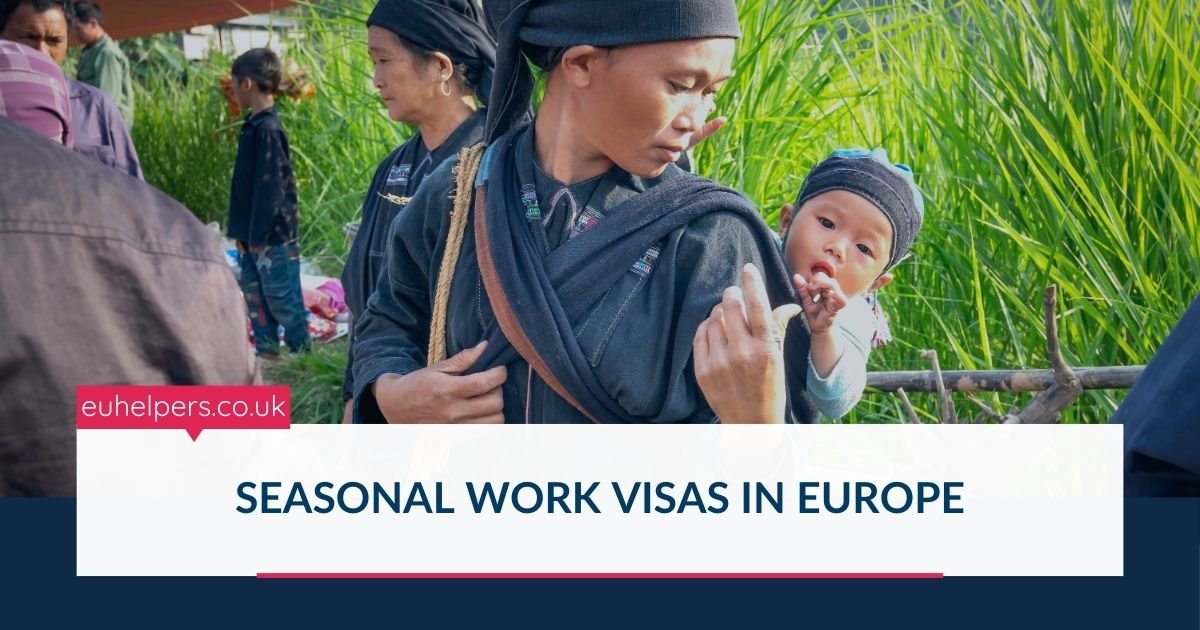Seasonal work opportunities in Europe offer non-EU citizens a chance to experience life abroad while earning an income in sectors like agriculture, tourism, and hospitality. To participate legally in these roles, individuals typically require a seasonal work visa, which permits them to work for a specified period—often up to nine months within a 12-month timeframe—in roles directly tied to seasonal demand.
However, each European country has its own specific rules, application procedures, and durations for seasonal work authorization. Understanding these details is essential before applying.
General Requirements for Seasonal Work Visas
1. Valid Job Offer or Work Contract
The foundation of any seasonal work visa application is a valid employment offer. Most European countries require a signed seasonal work contract that specifies the nature, duration, and terms of employment.
2. Work Permit or Authorization
In many cases, a work permit or seasonal work authorization must be obtained by either the employer or the employee, depending on the country’s regulations. This document is usually issued by the host country’s immigration or labor authorities.
3. Visa Application Process
If a visa is required, applicants typically submit their application to the embassy or consulate of the host country in their home country. Applications should be made well in advance of the expected start date due to processing times.
4. Required Documentation
While documentation varies by country, most applications require:
-
A valid passport
-
Visa application form
-
Recent passport-sized photographs
-
A copy of the employment contract
-
Proof of accommodation and travel arrangements
-
Health insurance coverage for the duration of the stay
-
Evidence of financial means or income from employment
5. Duration and Renewal
Most seasonal work visas are valid for up to 90 days (short-term Schengen visas) or up to nine months (long-term national visas). Some countries allow renewals if a new contract is secured, though this varies by jurisdiction.
Country-Specific Examples
Finland
In Finland, seasonal work is allowed under a Schengen visa for up to 90 days in a 180-day period. For longer durations, workers can apply for a “Kausityö” (seasonal work) visa. Details are available on the official Suomi ulkomailla (Finland Abroad) portal.
France
France issues seasonal worker permits for those with contracts in sectors like agriculture or hospitality lasting over three months. These permits are renewable under certain conditions.
Czech Republic
Applicants must apply at a Czech consulate with documents including an employment permit issued by the Labor Office of the Czech Republic. Long-stay visas for seasonal work can last up to nine months.
Italy
Italy offers seasonal work authorizations for 20 days to nine months, based on contract length. Jobs typically include agricultural and tourism work. Applications are part of Italy’s annual "Decreto Flussi" immigration quotas.
Norway
Norway provides residence permits for seasonal workers, especially for those working in fishing, farming, forestry, and hospitality, or as substitutes for regular workers on holiday.
Austria
Austria requires a residence permit for seasonal work, which may be assessed using a points-based system. Jobs often include roles in agriculture, tourism, and winter resorts.
Important Considerations
-
Research Country-Specific Rules
Visa rules, durations, and eligibility criteria differ significantly between countries. Always consult the official immigration websites or embassy pages of the country you plan to work in. -
Stay Updated
Immigration policies are subject to change, especially with shifting labor demands and political considerations. Always check for the latest updates before applying. -
Seek Guidance
If you're unsure about the application process, reach out to the embassy or consulate for assistance. Some countries also provide resources through employment agencies or governmental labor departments.
Seasonal work visas offer a unique opportunity for non-EU citizens to gain employment experience in Europe while contributing to industries reliant on short-term labor. With the right preparation and a clear understanding of visa requirements, workers can enjoy both a rewarding job and a cultural exchange experience abroad.








